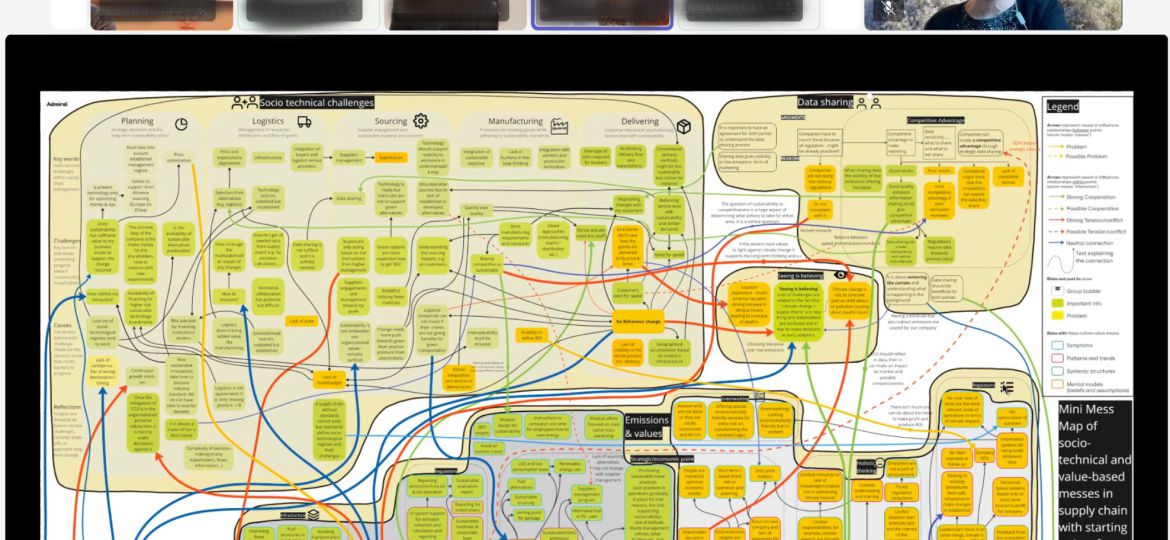Tackling CO2 Challenges in Supply Chains Through Systemic Design
Addressing Sustainability in Supply Chain Management
The urgent need for sustainable practices in supply chains is becoming more apparent as companies and organizations seek ways to reduce their carbon footprint. To explore this challenge, The Oslo School of Architecture and Design, in collaboration with the ADMIRAL Project, hosted four transformative workshops aimed at mitigating CO2 emissions in supply chain management using systemic and service design methods.
Understanding the Mini Mess Map Approach
A key aspect of these workshops was the development of a mini mess map, an innovative tool designed to examine the intricate complexities of sustainability challenges. This method, originally developed by Stanford emeritus professor Robert E. Horn, provides a structured way to address “wicked problems”—issues that are highly complex and interconnected.
Participants in the workshops utilized systemic design methods to analyze the challenges and produce a comprehensive map of interrelated problems and potential solutions. The outcome was a deeper understanding of the factors influencing CO2 emissions in supply chains and the role of sustainable decision-making.
Core Themes Explored in the Workshops
The workshops were structured around four major themes that play a significant role in shaping sustainable supply chains:
Mapping Values of Sustainable vs. Non-Sustainable Organizations – Identifying the key values that drive sustainable practices in contrast to those that do not prioritize environmental responsibility.
Sociotechnological Challenges – Understanding the interaction between social factors and technology in creating sustainable supply chain solutions.
Collaboration and Data Sharing – Recognizing the need for transparent information exchange to foster trust and effective sustainability efforts.
Relationships and Causes Between Areas – Examining how different factors interconnect and influence CO2 emissions in supply chains.
Key Findings and Takeaways
On November 7th, M.Sc students presented their findings and proposed strategies for addressing CO2 challenges in supply chains. Their insights highlighted the following crucial areas:
The need for long-term development strategies – Sustainable change cannot happen overnight; it requires a clear roadmap and commitment from stakeholders.
Leadership that integrates sustainable values – Sustainability must be embedded at all levels of decision-making, from executives to frontline employees.
The necessity of transparent data sharing – Open access to sustainability data is essential for fostering collaboration and achieving meaningful reductions in CO2 emissions.
Paving the Way for a Sustainable Future
These workshops provided valuable insights into real-world sustainability challenges while equipping students with practical tools to tackle these issues. By fostering interdisciplinary collaboration and systemic thinking, the initiative contributes to shaping a more sustainable future for supply chain management.
A heartfelt thank you to Associate Professor Mari Suoheimo and the dedicated students for their contributions and creativity.
